In early June, I left Midtown and ventured out to Bartlett to visit Angie Arnold at her newly established flower farm. The farm sits on three acres of property that was a dairy farm at the turn of the century and, along with the home she shares with her partner and son, includes a large silo and a repurposed barn and pump house. Gardening since she was in her twenties, Angie has only been operating Flower Friend Farms since last spring and is slowly expanding. Upon entering the garden, there is a tangle of blackberries and raspberries that have enveloped the chain link fence, then rows of deliciously sweet sun-ripened blueberries pop into view. I’ll stop here to say that the raspberry I tasted during my tour was the most raspberry-tasting raspberry I’ve ever had, the most delicious candy. (Sorry folks, none of the food grown at the farm is currently available to the public!) What begins next is the vast array of rows and rows of colorful flowers: gladioli, lilies, roses, dahlias, heirloom mums, zinnias, liatris, figwort, blushing lanterns, vervain, marigolds, hydrangea and so much more.
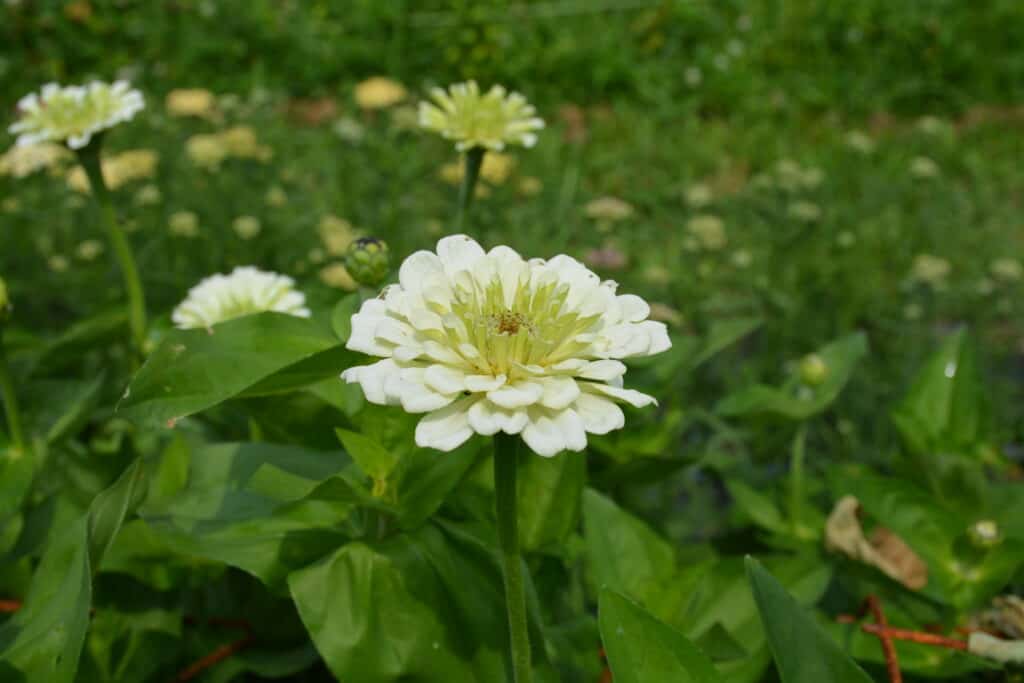
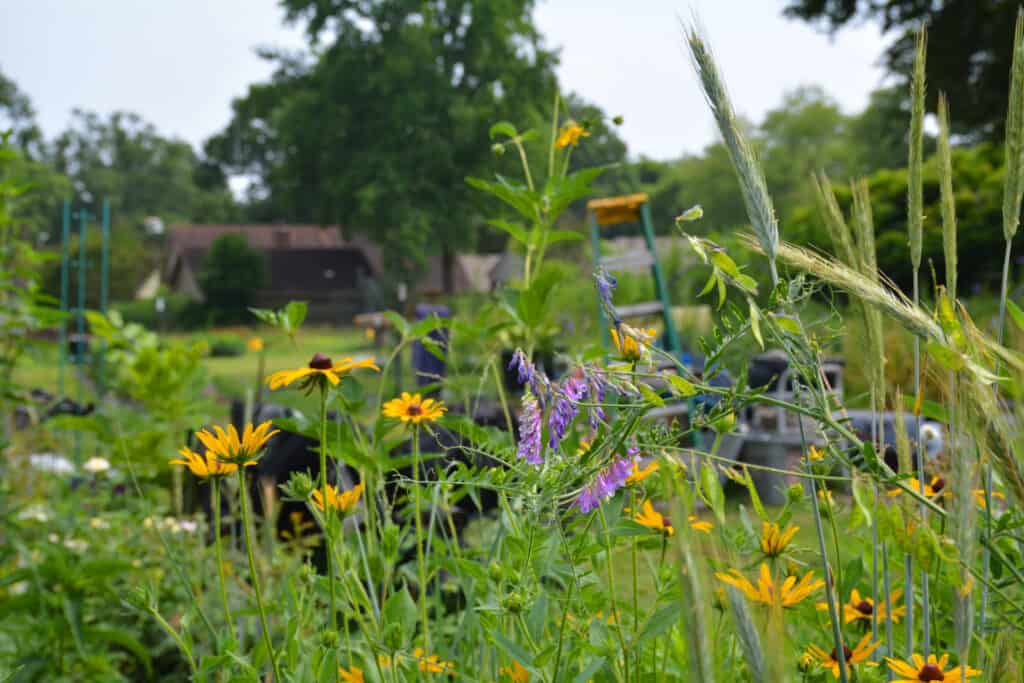
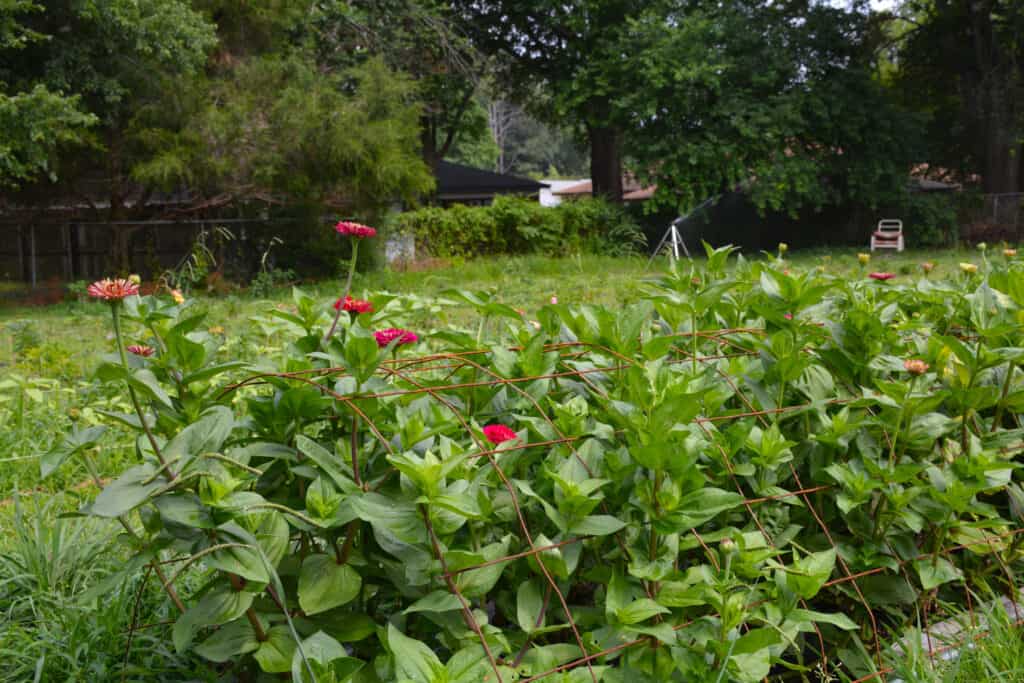
Growing has its many challenges. Inhospitable city ordinances and unpredictable weather (which most likely will continue to worsen as climate change progresses), can ruin or delay growing seasons and farming practices. This year, for example, spring came early encouraging young buds and new growth that late frosts subsequently killed. Arnold lost plums, peaches, blueberries, and apples, among others. And as many gardeners and home owners can attest, the extreme weather of last year—the summertime drought followed by extreme and prolonged freezing temperatures in winter— killed or damaged many trees, shrubs, and perennials around town. I, for one, haven’t seen a single fig tree that emerged unscathed (or even alive) and the list of beloved plants lost (azaleas, camellias, tropical milkweed, etc.) goes on and on. It’s important to note here that native plants fare the best in this extreme weather and will continue to be more robust than exotic or tropical species in the face of this new normal. The questions that Angie is already asking herself—“How do I deal with this unpredictability? Do I select for heartier crops? Or later blooming ones?”— are questions that all of us will eventually be asking ourselves.
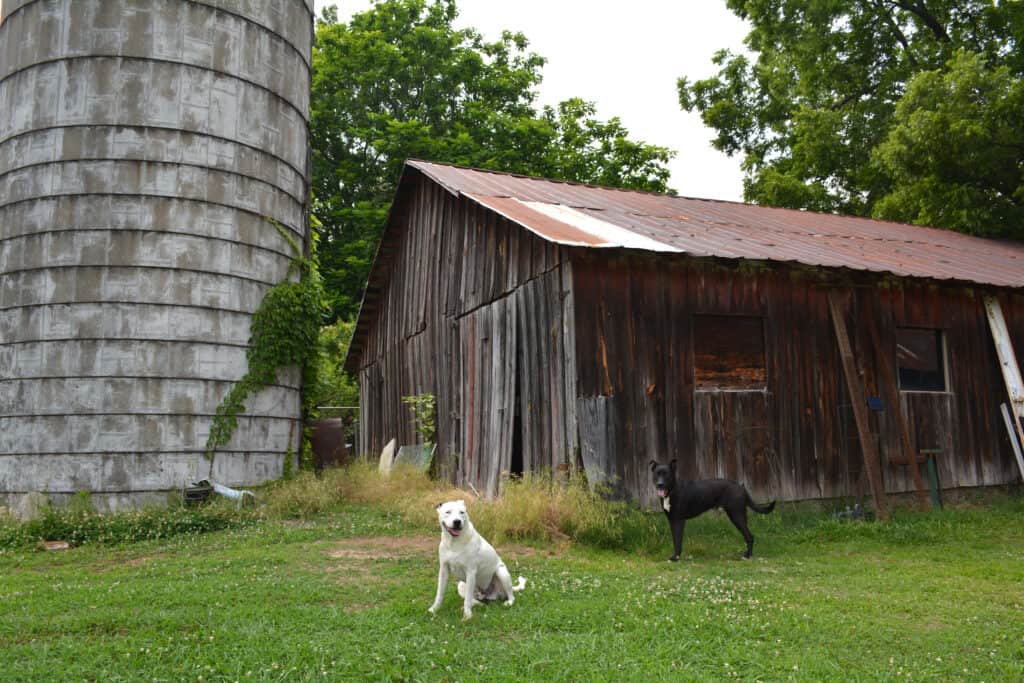
While the Bartlett operation is still quite modest and mainly focuses on selling quality cut flowers to local florists and event planners—such as Everbloom Design on Broad Ave. and Snapdragon Floral out East—Arnold has plans to eventually acquire a second property to grow annuals exclusively so that she can continue to expand and focus on her perennial operations at the original site. Additionally, a recently installed walk- in cooler in the old pump house will allow the farm to keep and store flowers for much longer. Angie has also become a member of the Memphis Flower Collective, a recently organized group that builds direct connection and relationships between local flower farmers and florists.
Wondering what you can do to support growers like Flower Friend Farms? Buy locally-grown flowers from florists. Ask for them! Look for them! Like Angie says: “Your flowers should be grown by people who love them.” As I’m sitting down to type this, the lilies she gifted me have opened and are filling the room with the most fragrant smell, made all the sweeter by knowing they were grown right here, with love, in Memphis, TN.
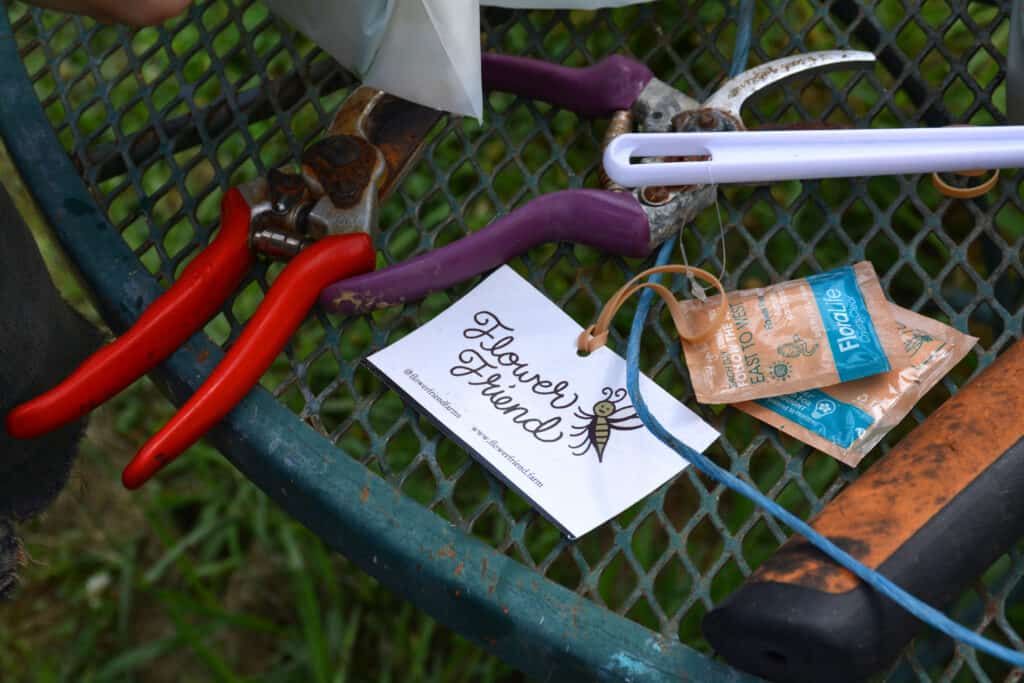
Find Angie on Instagram at @flowerfriendfarms or her website flowerfriend.farm.



